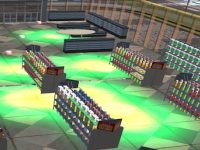Requirements Engineering Defining Problems—Enabling Solutions
Rising complexity of systems across the industrial landscape is driving the need for transformational technologies to manage requirements in the context of total product configuration for companies.

September 4, 2019
Aras’ Requirements Engineering (RE) application manages both textual and structured (data model) requirements content. This enables requirements and requirements content reuse across documents, projects, and product lines.
RE enables traceability within the context of the PLM digital thread. A Data Model approach of RE not only enables defining, managing, and maintaining requirements across the product lifecycle, but also allows for capturing and managing the relationships between the requirements.
Requirements Management (RM) is central to any complex system and/or product design. With the ever-increasing complexity of products, the central role of requirements management becomes ever more critical for:
- Meeting design objectives
- Meeting contractual obligations
- Design quality
- Mitigating impact of changes
- Achieving faster time to market
- Reducing product cost
- Less cross-discipline rework
- Lower risk of regulatory non-compliance
- Resolution of issues that may arise during deployment.
Fill out the information below to download the resource.
Latest News
ASME Foundation Wins Grant to Develop Workforce
ECMC Foundation funding to help enable underserved students to pursue technical careers, ASME reports.

3D Solution, Meltio Team to Advance Metal Additive in Germany
Brauer Group's 3D Solution partners with Meltio for additive manufacturing solutions.

Next-Gen: Growing Green Space Access via Mobility
Student Competition Profile: Otis Worldwide’s “Made to Move Communities” Competition

Securing Design IP in Distributed Manufacturing
Decentralized production models increase security and risk exposure of standard design intellectual property and additive manufacturing process parameters and recipes.

Digitally Designing the Factory of the Future
Artificial intelligence also plays a role in building an efficient, economic plant layout for optimal operations.
Vectary API Brings Product Digital Twins to Life
The new offering enables companies to integrate digital twins for immersive 3D experiences, enhanced decision making, and real-time product control.
All posts
New & Noteworthy

New & Noteworthy: Safe, Cost-Effective Metal 3D Printing - Anywhere
Desktop Metal’s Studio System offers turnkey metal printing for prototypes and...

New & Noteworthy: Direct Neutronics Analysis on CAD
Coreform Cubit 2023.11 workflows enable neutronics directly on CAD for next-generation nuclear energy...

New & Noteworthy: Agile Engineering Collaboration
Authentise Threads is a new software tool for distributed communications and project...

New & Noteworthy Product Introduction: Enterprise VR Headset
Lenovo ThinkReality VRX has an immersive display works with virtual, augmented and...
